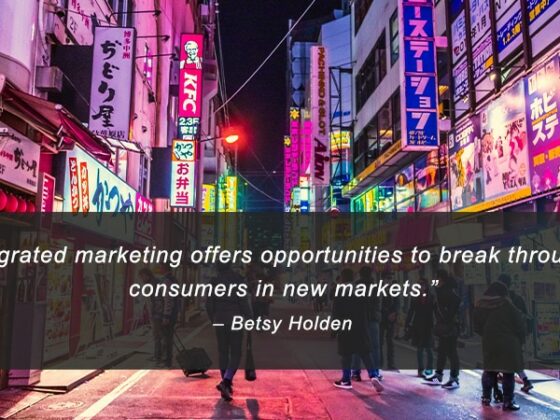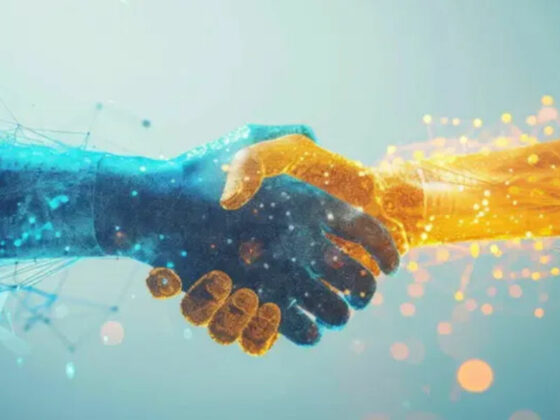Josiah:
In a world increasingly driven by artificial intelligence, trust becomes more important than ever. Stick around to learn what this means for the way that you think about providing hospitality today. Jacqui Nunley is a travel and hospitality industry advisor at Salesforce. In this episode, we talk all about AI, trust, and what it takes to thrive in hospitality. Today, let’s talk about trust a little bit. How are you thinking about trust and the importance of trust in this environment?
Jacqui:
Sure, when you think about it, trust in any context is really built on transparency, on reliability, on genuine intention. In the world of AI, especially in our approach here at Salesforce, we understand that the importance of these particular values, and we prioritize firstly, open communication about how AI systems operate, the data that they use or the decisions that they are automating. This transparency is what demystifies AI. When we were prepping for this call, we talked about that initial anxiety that we have seen in our industry. We hope that promoting an understanding actually helps address some of the anxieties that we see not just in our industry, but in other industries too. In addition, we are trying to ensure that our systems perform as promised. That is what is going to enhance that trust in the technology and in our brand here at Salesforce. Simultaneously, we hope that our customers are able to pass that on with their brands to their customers. We have a responsibility here at Salesforce and many companies know that we continually talk about this. Our responsibility is to safeguard our customer data and maintain its privacy. That is what the CRM was built on. Our commitment today to security and privacy has always reinforced our customers trust. As AI adoption starts to accelerate – not just in our industry but everywhere – we’re aware of the potential for misuse. We’ve talked about that as well, not just internally, but also to make our customers aware of the risks that exist based on what systems they’re using. Our emphasis here is an ethical approach to AI use, providing solutions that respect user autonomy, and that maintain that human-centered approach. It’s this blend of transparency, consistency, data protection, and privacy – but also ethical AI practices. What is going to help build and maintain the trust in our solutions, even in a rapidly moving digital landscape. That’s really our approach to it. I’m really happy to be part of it, part of this change in technology and bringing that message to our industry and beyond that.
Josiah:
Right. Things are moving quickly, and I think you addressed this from a few different perspectives, but it all comes back to transparency, and being proactive with communicating here’s what is coming, here’s what we know, here’s what you should know. Beyond the rapidly evolving nature of areas like AI, I think it’s interesting to look at building trust against the backdrop of maybe some societal trends. You and I have talked before about the declining trust in people and institutions and so you have these two vectors where not only is technology advancing rapidly, but you also have an increasingly low trust environment, which feels like an opportunity to double down on trust, to try to make people feel like they know what’s happening and to build these relationships.
Jacqui:
Sure, I think we’re still early, but you rightly said it. We have an opportunity here, one of the things that I always talk about because this is tied in with that anxiety as well. We have to recognize that AI is a tool. It’s not like other tools, but it’s a tool and its impact really depends on how it’s being used. Now, using AI to augment our hospitality services, but keeping people at the center of the technology strategy. I think with that approach we can quell some of the anxieties and pave the way to a more efficient, personalized, sustainable future. That shows it’s not just our industry that is thinking this way about it. It’s other industries as well. But I think that we have a unique opportunity to be able to prove that, and it’s because of those components of the human touch being the heart of hospitality, really. But it’s funny when you look at it, Josiah, this is just an interesting topic and we could talk for hours and hours and hours. But it’s funny when you think about it. Looking back at when the internet first made its debut, when online distribution became the thing, I think that was met with initial apprehension as well, but what helped normalize its use, if you think back, was a number of things. The first thing that helped was transparent communication. So what I mean by that is how the internet would streamline bookings and reservations. It was going to enable those real-time updates. That was really exciting. And then a lot of companies started to demonstrate value. So, as people saw the internet’s convenience when we’re talking about the traveler’s side, all of a sudden it became convenient, it was easy, and then OTAs came into the mix and all of a sudden a traveler could price compare. And then it was a game changer when we were getting instant confirmations.
Jacqui:
So everybody really started to embrace that and some of those fears started to come down. Another area was privacy, and EMEA played a big part in this, but it was to ensure data protection standards. That helped gain what trust it really was. Okay, I’m going to put my information out there, how I’m going to trust that you’re not going to misuse it, or should I trust your platform and put my data there? And then you know, the gradual integration into operations happened and this was when that adjustment of learning was actually happening. And then finally, despite all of the digital advancements, the personal service and human connection of hospitality remained paramount. Out of all of that, it still was the top thing for us, and there’s something to that, and I think we’re experiencing a lot of our deeper today anxieties about AI, that kind of live in the same space. Now, it doesn’t take care of, maybe, what we will be talking about, which is the area of talent, but I know that from just looking at it from this particular angle or perspective, I see a lot of the conversations really mirroring what we went through as we came online.
Josiah:
I appreciate that example because it is helpful to look at history, whether it is how we came online with the Internet if it’s how we use mobile devices, or even before that. I think it’s fascinating to look at the history of how radio or television or the car was introduced and all of the societal pushback around this. And you’ve spoken before about trying to humanize our anxiety around technological advances and hearing you talk, what’s coming up for me is the sense of recognizing things are changing quickly, so we’re not sticking our heads in the sand here. We know it’s changing quickly. Here’s what we know about those changes. But there’s also a component of it where you’re recognizing that hospitality is fundamentally human and so you’re again just being transparent with. This is the environment we’re in, this is where it could go.





